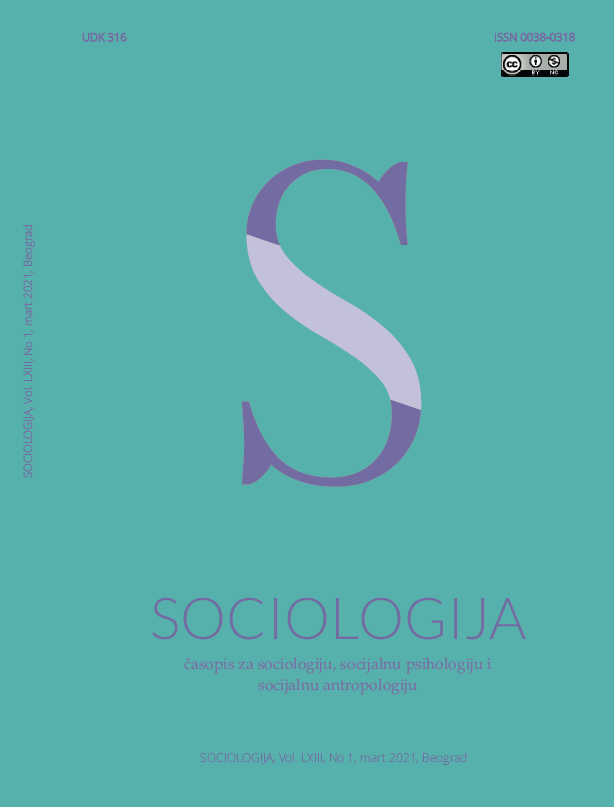Asertivnost, samopoštovanje i uticaj roditelja (očeva) kao faktori rizičnog ponašanja srednjoškolaca: slučaj Crne Gore
Assertiveness, Self-Esteem and Parental Influence (fathers) as Factors in High-Risk Behavior of High School Students: the Case of Montenegro
Author(s): Uglješa JankovićSubject(s): Sociology
Published by: Sociološko naučno društvo Srbije
Keywords: assertiveness; self-esteem; locus of control; risky behaviors; logistic regression analysis
Summary/Abstract: This paper examines the significance of the influence that assertiveness, self-esteem, locus of control, and parental behavior have on the forms of risky behaviors among high-school students in Montenegro. The research is based on data obtained from a wider-ranging study, entitled “Children and Addiction Disorders in Montenegro” (2019). The paper takes the position that assertiveness, self-esteem and locus of control are social skills acquired through observation, and that they carry predictive potential for certain forms of risky behaviors. A survey was conducted on a representative sample of 625 high school students from 25 high schools in Montenegro, with the aim of testing the propensity for risky behaviors. The research also examined the influence that parents have on high school students replicating risky behaviors. Fourteen forms of risky behaviors among high school students were operationalized, and three dependent variables were selected to measure the frequency of occurrence of risky behaviors: soft drugs, hard drugs and betting/gambling. The research gathered data on socio-demographic characteristics of high school students, with the ultimate objective of defining control variables in the procedure of testing the hypotheses. To that end, the paper applies binominal (logistic) regression analysis. The results of the research indicate that assertiveness and self-esteem are strong protective mechanisms in the context of risky behaviors among high school students. The effect of the locus of control was recorded, but at a significantly lower lever than the aforementioned protective factors. Additionally, the research indicates that there is a strong impact of parental behavior (that of the father) on the behavior of high school students.
Journal: Sociologija
- Issue Year: 63/2021
- Issue No: 1
- Page Range: 50-71
- Page Count: 22
- Language: English

